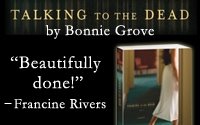Writing Books Quick Tip: Reference books are important. I read libraries of reference books (my absolute favorites are The Book of Lists 1, 2, and 3) on all sorts of subjects. Why? I have found fascinating tid bits of information, leads on story ideas, and have deepened my understanding of the world through reading them. When I sit down at the computer to write, I have all this information in the background, waiting to jump out and contribute something wonderful to what I'm writing.
When it comes to art, writing is in a league of it's own. Every art form has its critics, but in writing, those critics pick up the pen and re-work the art. Imagine what would happen if, at a gallery opening, a "famous" critic not only reported on what she didn't like about the art on display, but also picked up a paintbrush and corrected the offenses.
Pandemonium would ensue. Suing would ensue. Something like that could plug up the system for decades.
But writing is different. Words are the canvas - language, and therefore writers convey meanings in different ways than one of a kind pieces of art. It is the burden of the artist/writer to be clear about meaning. If she fails in that task she will, at worst, remain unread, at best, be re-written.
I'm talking, of course, about rules. Rules of writing. Rules of expressing the human condition with clarity and depth of meaning.
I've heard writers complain about the rules of writing; say they are too rigid and interfere with the creative process. That may be, but if you have any intention at all of being published, you need to understand that the art of writing is governed by the rules of language. (If you don't care about being published, then by all means write anything you like anyway you care to)
Funny thing about these rules, though. They change.
Oh fickle finger of fate. . . okay, not fate, but language. It changes over time and so books reflect the change. Have you read Dickens lately? Austin? Oh so very different from today. Multiple POV, sometimes within the same sentence. Tsk tsk. Off with their heads!
So, if writing is too fickle for rules, what's a writer to do?
How about, instead of rules we focus on "tools"?
This is more than a semantic difference. Rules mean you can't run in the hallways. Tools suggest that, should you find yourself in a hallway, there's more than one way to get through it. Your job then becomes to get to know your tools intimately so that you are able to choose which is the best one for any given job.

If this sounds brilliant to you, I must fess up. The idea didn't originate with me (are you shocked?:) ). Roy Peter Clark has written a book called Writing Tools: 50 Essential Strategies for Every Writer. It's a worthwhile read, if for nothing else than to listen to a writer who has a "calm down, relax, and trust yourself" approach to writing (which, in my opinion is the mark of a truly good writer). He is plain speaking, honest (to the point of inducing readers to flinch, but he never does), and eloquent.
You are getting the impression I like this book?
I do.
The strategies are sometimes common sense, sometimes inspirational. But they all makes sense in given circumstances. He's organized the book in four sections (toolboxes):
1. Nuts and bolts: working at the word, sentence, and paragraph levels.
2. Special effects: tools of economy (a cherished commodity in the world of modern publishing), clarity, originality (another 'must have'), and persuasion.
3. Blueprints: organizing and building stories and reports.
4. Useful habits: routines for productive writing.
(yeah, the "tool" metaphor falls apart there, but it's still a good way of looking at it)
For the reasons I've outlined above, I would recommend checking Writing Tools out at your local library (whenever possible, I check writing books out first before buying them) and see if "the tool belt fits".
I bid you good writing









No comments:
Post a Comment